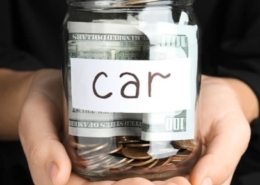10 Misconceptions About Fuel Economy
On the Internet, you can find tons of information on how to preserve and increase your car’s fuel economy. Some of this information may be true, but most of the time, it’s just false promises to get you to part with your hard-earned money.
Even informed customers and car enthusiasts may be surprised by some of the misconceptions on the list. Some of them used to be accurate and regarded as common knowledge in the past.
However, some of these “truths” have become obsolete or less prevalent due to significant advancements in automobile technology.
Table of Contents
Common Questions About Fuel Economy
Many car buyers will consider fuel economy before buying a new car. Another answer people are after is how long can they drive the vehicle before it runs out of gas?
Some of the most common searched questions about fuel economy are:
- “Are fuel additives necessary to increase gas mileage, or are they just bogus products that don’t work?”
- “Should you let your car warm-up? If so, how long?”
- One of the best ones is, “Should you replace an aging car because as the vehicle gets older, the fuel economy tends to get worse.”
The United States Environmental Protection Agency (EPA) exposes many of these fuel economy myths and more. The list below will help new and used car shoppers make better car buying decisions, understand the EPA’s role, and know which vehicle to choose and when you should select it.
Top 10 Fuel Economy Misconceptions
Familiarize yourself with the top 10 most common fuel economy misconceptions below.
1) Myth: Bolt-on Devices and Fuel Additives Increase Fuel Economy
The most controversial area in the gas mileage subject always seems to be a surge of these products when gas is north of $3+ a gallon. These gas additives and aftermarket devices magically increase your fuel economy. Still, no matter what they claim, the Better Business Bureau and the Federal Trade Commission don’t believe it and warn you not to believe what they say.
NOTE: The Environmental Protection Agency will only sign off comprehensive total conversions that meet all the strict EPA certification guidelines.
2) Myth: A Smaller Car Gets Better Gas Mileage
Back in the day, this used to be a true statement before the rise of newer technologies. The Mitsubishi Mirage is the most fuel-efficient non-hybrid on the market at 40 miles per gallon. The Toyota Prius c hybrid is at the top of the chart with 50 mpg.
However, many of the bigger cars are becoming more competitive. For example, the 2016 Chevy Malibu Hybrid is rated to get 47 MPG. It has much more room and is safer than a subcompact vehicle. Almost half of the vehicles on the EPA’s top 10 list are midsized, wagons, or large cars, and most are hybrids.
3) Myth: Replacing Your Car’s Air Filter Helps Fuel Economy
Although you should change your air filter on a regular preventive maintenance basis, changing it doesn’t necessarily mean it will increase your fuel economy. Modern fuel-injected engines compensate and reduce the engine’s power when it senses a dirty air filter.
This myth is still hanging from the days of the carbureted engines of the past. Dirty air filters would adversely affect these types of engines.
You should still change out your air filter when it’s dirty, it will improve power by allowing your engine to breathe more accessible, and the air-fuel-mix may increase.
4) Myth: You Should Let Your Vehicle Warm Up for the Best Gas Mileage
Another oldie-but-goody. Letting your vehicle warm up for long periods in the winter does nothing but benefit you personally. It doesn’t save you any fuel; a car gets zero miles to the gallon if sitting still. Modern vehicles are designed to be ready to drive within seconds of starting them up.
Manufacturers have a recommended optimal engine temperature to get the best gas mileage. Still, they also recommend you begin driving the vehicle gently and carefully after first starting it up and letting it warm up as you continue your journey. They also state that you should not rev the engine or apply any heavy loads until the temperature reaches an acceptable operating range.
5) Myth: EPA Stickers Guarantee a Vehicle’s Fuel Economy
There is no way to guarantee any vehicle’s exact gas mileage; some consumers will get more, and some will get less than what’s listed. Too many variables come into play when determining gas mileage, including the driver’s habits.
Even on the EPA stickers you see on new cars; you will find a disclaimer stating, “Actual results may vary for many reasons.” The EPA fuel economy estimates they provide consumers with an unbiased, uniform way of comparing the efficiency of related vehicles. The EPA attempts to test gas mileage on new cars in real-world driving conditions, but their estimates are not perfect.
6) Myth: A Vehicle’s Gas Mileage Will Decrease With Age
Should you replace your vehicle if it’s five years old or older because it’s starting to get less gas mileage? The EPA says you may want to only if you purchase a more fuel-efficient vehicle. However, as far as your older car is concerned, as long as you’ve properly maintained it, it shouldn’t have dropped from any original specs.
The EPA says, as long as you maintain your vehicle, even if it’s ten years old or older. It will not vary from its original fuel economy when it was new.
7) Myth: The Federal Government Tests All Vehicles for Fuel Economy
Vehicles over 8,500 pounds are NOT subject to testing by federal law. Larger pickup trucks such as the Chevrolet and GMC 2500/3500, Dodge 2500/3500, and the Ford F250/350 exceed the weight limits and are excluded from testing.
8) Myth: It Takes More Fuel to Start an Engine Than to Let it Idle
Vehicles over 8,500 pounds are NOT subject to testing by federal law. Larger pickup trucks such as the Chevrolet and GMC 2500/3500, Dodge 2500/3500, and the Ford F250/350 exceed the weight limits and are excluded from testing.
9) Myth: Premium Gas Gets Better Gas Mileage than Regular Fuel
The EPA says, “you’ll probably experience no benefit from using premium fuels over regular gas.” The only time you should use premium fuel is in the case of engine knock when running on regular. The extra octane does not improve fuel economy; if your vehicle runs on regular fuel, use regular fuel. All you’re doing is costing yourself additional money.
10) Myth: Manual Transmissions get Better Gas Mileage Than Automatics
Accurate in a sense, a perfectly well-operated manual may provide excellent fuel economy. But, it comes down to how well it operates and with zero human error. Many manufacturers have discontinued the stick shift transmission as an option altogether.
Technology advancements have allowed automatic transmissions to match and even eclipse the fuel economy of manual transmissions—advanced automatics such as the continuously variable transmission (CVT) used in hybrids and many conventional cars.
Shopping for a new car?
Before visiting a dealership to buy a new car, it’s essential to know the dealer invoice price and what other people are paying for the vehicle in your local area. Otherwise, you won’t know a reasonable price to pay for any car you’re looking to buy.
Learn how to have dealers compete with each other online before ever stepping foot inside a dealership to guarantee you pay the best new car price and avoid any modern-day car dealer scams.
I highly recommend using an online referral service such as Ryde Shopper or Motor Trend. Their quotes will automatically include any discounts or cash-back incentives currently available in the marketplace.














